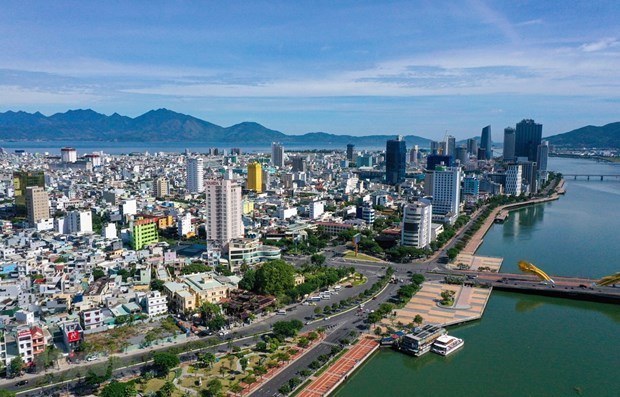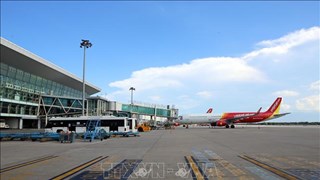Da Nang’s urban governance pilot sees positive outcomes
The central coastal city of Da Nang has so far recorded positive results from its pilot implementation of the urban governance model and a number of distinct policies and mechanisms serving its socio-economic development.
 A view of Da Nang city (Photo: VNA)
A view of Da Nang city (Photo: VNA)The pilot project, launched following a National Assembly resolution dated June 19, 2020, is considered a significant task to further perfect the state apparatus, including local government organisation, ensuring consistency, transparency, effectiveness, and efficiency.
Activities serving the pilot have been carried out according to the plan, ensuring the set progress. The transition between the two phases of execution has been smooth, without significant problems or major complications that would impact or hinder the management and operation of the district- and commune-level people's committees. The work of arranging and organising the administrative apparatus, as well as personnel management has been well accomplished.
The project has been assessed to help streamline the administrative apparatus, reduce administrative procedures, enhance the proactive management of the administration, strengthen the responsibilities of the heads of district- and commune-level administrative agencies, and improve the efficiency of state management.
So far, the city has completed six out of 12 supervision areas approved by the Standing Board of the municipal Party Committee. It has also contributed ideas to 48 draft documents of the Government, ministries and central agencies, and local agencies and sectors. Additionally, 115 meetings with constituents were held.
The central economic hub has seen strong growth in recent times. However, challenges remain, as a number of sectors, industries, and businesses continue to be affected by the COVID-19 pandemic as well as unfavourable domestic and global economic conditions. Particularly, fluctuations in the prices of fuel and oil, construction materials, and certain food items have had significant effects on various aspects of social life.
Since 2020, Da Nang has built a database based on various sources, with 560 public service databases established. The data has helped State agencies manage work better, supervise public service provision, and monitor traffic flow, water and air quality. The city has also launched digital assistants, including chatbots and voicebots which automatically instruct local people to handle administrative procedures and public services.
Each Da Nang citizen has an electronic account. They need to register one time and access the available database. About 260,000 citizens have registered for electronic accounts, making up more than 43% of the population aged 18 and more. The proportion of documents handled online has reached over 78%, 1.5 times higher than the national average.
According to Nguyen Quang Thanh, Director of the municipal Department of Information and Communications, the e-government and smart urban area building inspire the city’s digital transformation.
Experts said that attracting more experts and businesses and promoting urban resilience are significant steps that would help Da Nang become a livable city in the region.
Under its Master Plan for the 2021-2030 period with a vision to 2050, Da Nang expects to achieve average annual economic growth of 9.5-10%. By 2030, its economic development will focus on three pillars: tourism, the knowledge-based economy, and services./.













